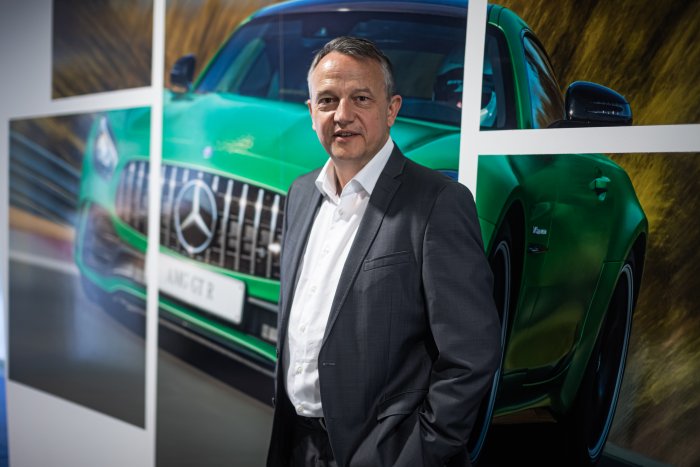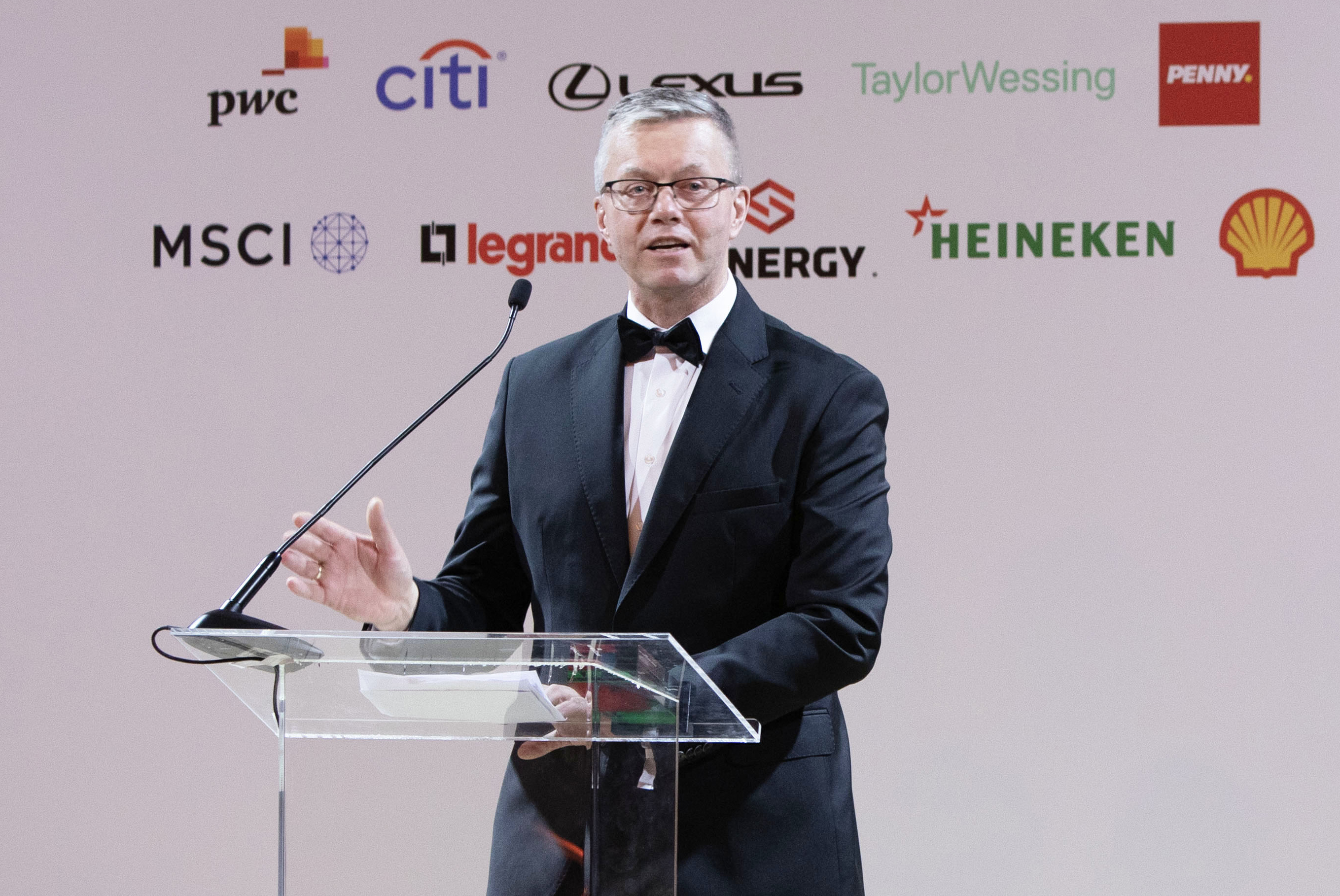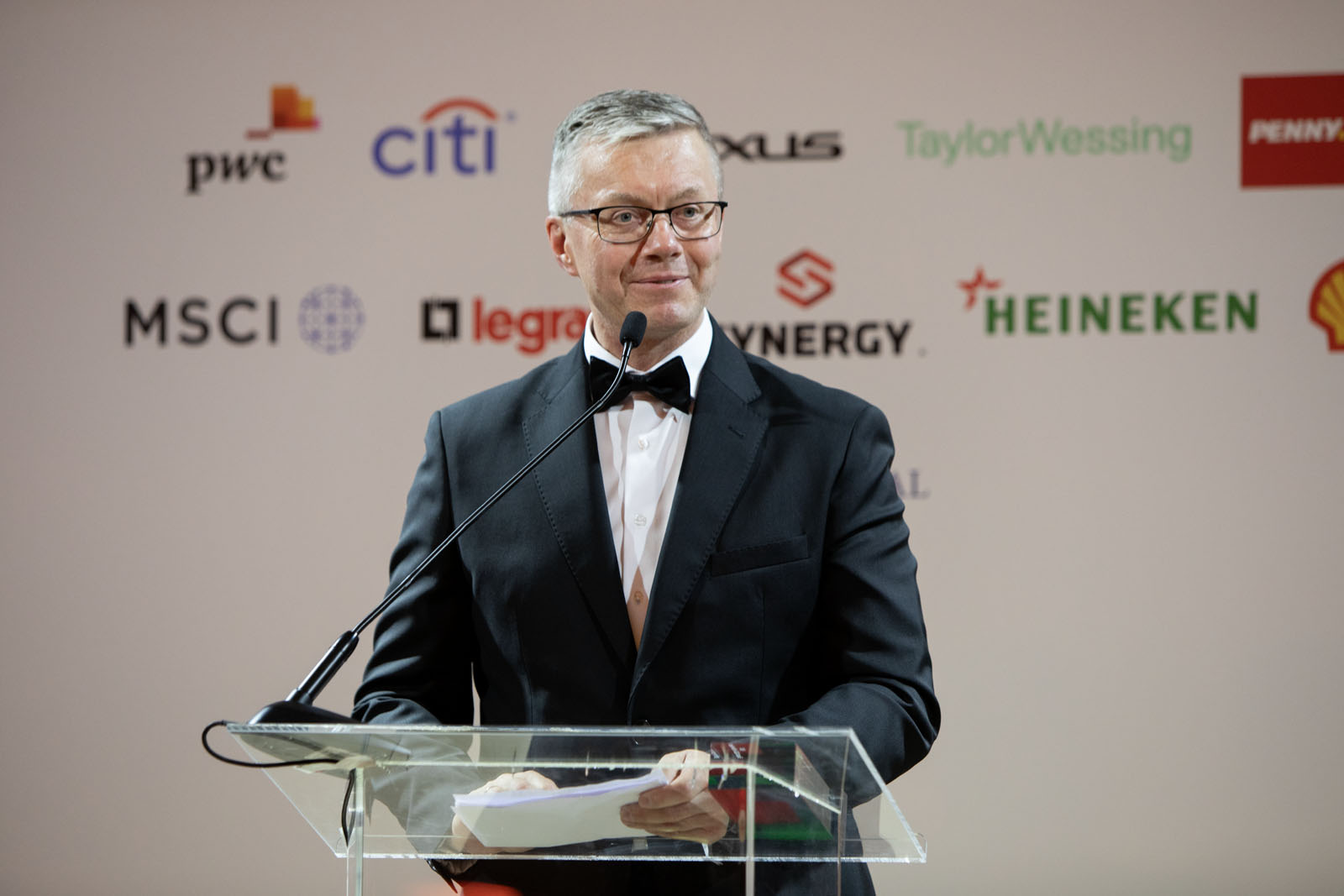Daimler’s Accidental Expat Manager on the Move Again

Árpád Pintér/BBJ
What started in 2000 as a three-year plan to gain some international experience has resulted in a 17-year career as an expat manager for Daimler stalwart Jörg D. Schmidt, who has run commercial and passenger sales for Mercedes-Benz in Hungary since 2016. His next stop will take him even further afield.
Jörg D. Schmidt. Photo by Árpád Pintér/BBJ.
“I have been with Daimler for 31 years, having joined Mercedes-Benz in 1988,” Schmidt tells the Budapest Business Journal in an exclusive interview.
“In February 2000 I went to Egypt and signed a three-year contract, thinking I would most likely come back [to the Daimler HQ in Stuttgart] right after, only it never quite happened,” he recalls with a laugh.
He says serendipity in career moves is essential, whether it is in terms of personal or career growth on the individual’s part, or the business needs of the company on the other, and later what is right for the family. It is a question of matching the timing with the possibilities.
Those possibilities have taken Schmidt from Egypt to Singapore, South Africa, Russia, and Hungary. “In the past 19 years I have spent just 24 months in Germany,” he says.
From August, the family base will be in Australia, and while that is a long way from Germany, it is much closer to home for Schmidt’s wife, a New Zealander he met while in Cairo, where she was working for PwC.
“It is an exciting time, for us all. I’m starting a new job; the kids are getting excited about being nearer their Granny.” Schmidt’s new role is as Sales Director for Mercedes-Benz cars, with responsibility for both Australia and New Zealand. His wife must be pleased, I suggest.
“There will be some business trips to New Zealand, for sure. She can’t come along, but I will have some fun,” he jokes.
Market Size
One obvious difference between Hungary and Australia is market size, both in terms of people and geography. The estimated the last official census, in 2016, recorded a population of 23.4 million.
Famously, though, there is a large disconnect between population (it is the 55th largest nation in terms of head count) and landmass (it is the sixth largest country in the world). That will present some challenges for Schmidt, who will be based in the country’s second city, Melbourne (home to 3.9 million people), on the southern coast.
“From Budapest, if I want to drive around all the dealers I can do it in about two-and-a-half hours. In Australia, I will have to fly for a few hours. [….] If we were to call together all the dealers in Hungary, we would have a group of about 20. In Australia, it is going to be closer to 100. It means there will be a difference in how we communicate. I won’t be able to spend as much time with each dealer, plus there are the longer distances.”
The market itself is more developed in Australia, built on the back of 27 years of uninterrupted economic growth, albeit there are signs it may now be slowing down.
But while the markets may be different, the business model won’t change. It is based on a partnership between Mercedes-Benz, which provides the brand, the product, the marketing, and the quality control, and the dealer network, which is largely responsible for the sales.
“It works very successfully here in Hungary, but I have also seen it in operation in the Arab world, Southeast Asia, Africa, Russia; the model works in all areas. It is in the mutual interests of Mercedes-Benz and the dealer body to develop the business in the same direction: it is clearly a partnership and a cooperative model.”
Trust is Key
The key element, Schmidt says, is trust, which has to be built up between the dealer body on one side, and the sales director on the other. That requires personal face time, and honoring commitments made. “If we want the dealers to invest and be ambitious in their plans, you need that personal trust,” he says.
But while Schmidt is the point man for building that trust, it is far from a one-man operation that has seen sales double compared to 2015.
“I am very proud of the team we have created here. It is a nice mix of the young and the more mature, some of whom have been with us 20 years. Those that have been with us between zero and two years make up 40% of the workforce, but you need both, those who know the history and the brand and are very loyal to it, and also those who are open, who bring a fresh approach and ideas.”
That team has grown alongside rising sales. One of the major projects Schmidt oversaw in his time in Hungary is the move of Mercedes-Benz Hungária Kft. to its Nordic Lights offices on the Váci út corridor, partly driven by the need for space per se, and partly by the need for something more modern, more in keeping with the brand.
One way or another, moving has been a large part of his career, and Schmidt is keen to point out the importance of the support of his family, and especially his wife, of course. But he says he has no regrets about spending so much time outside his home country.
“We need to encourage people to travel. I flew for the first time when I was 13, to England on a school exchange – I still have some contacts from then – and it has not harmed me in any way. It is important people meet people from other parts of the world, experience other flavors and cultures, because only then can we understand ourselves. I think that is one of the biggest benefits expats bring to businesses. People always want the same thing: a safe and prosperous life for themselves and their families, and good opportunities for their children.”
SUPPORT THE BUDAPEST BUSINESS JOURNAL
Producing journalism that is worthy of the name is a costly business. For 27 years, the publishers, editors and reporters of the Budapest Business Journal have striven to bring you business news that works, information that you can trust, that is factual, accurate and presented without fear or favor.
Newspaper organizations across the globe have struggled to find a business model that allows them to continue to excel, without compromising their ability to perform. Most recently, some have experimented with the idea of involving their most important stakeholders, their readers.
We would like to offer that same opportunity to our readers. We would like to invite you to help us deliver the quality business journalism you require. Hit our Support the BBJ button and you can choose the how much and how often you send us your contributions.







